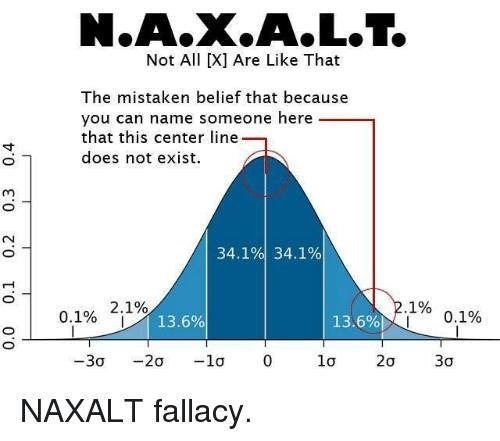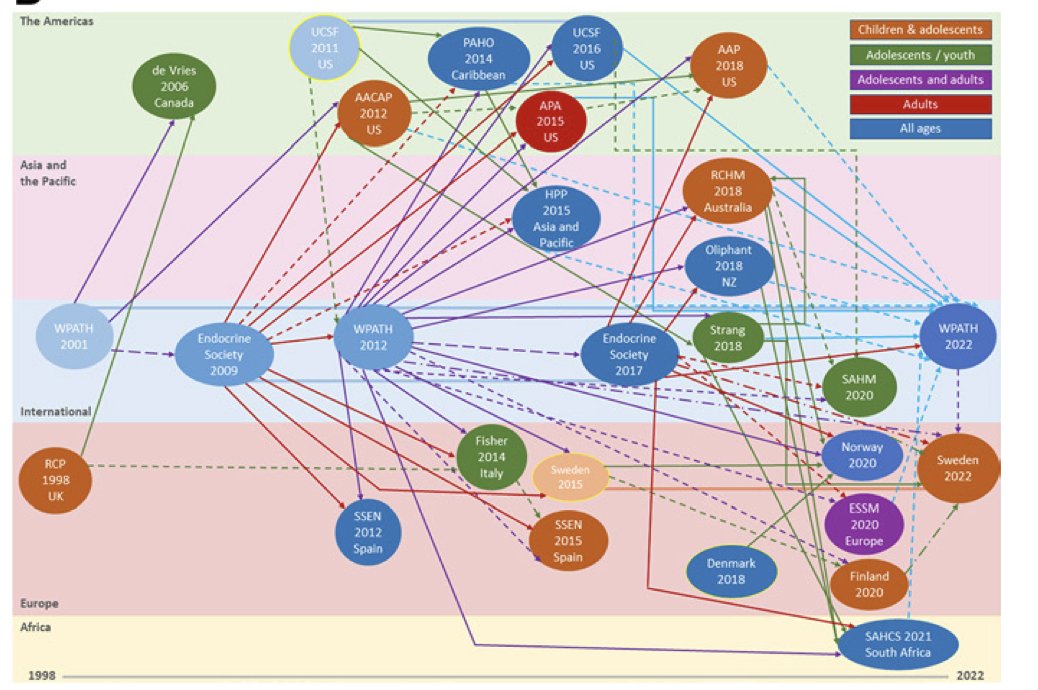A NEW MENTAL MODEL MEGATHREAD HAS ARRIVED!
In 20 tweets I’ll summarize 20 of the most useful principles I know.
Estimated reading time: 4 minutes.
Value: A lifetime.
Thread:
In 20 tweets I’ll summarize 20 of the most useful principles I know.
Estimated reading time: 4 minutes.
Value: A lifetime.
Thread:
1. Dopamine Culture:
“Every kind of organized distraction tends to become more and more imbecile.”
— Aldous Huxley
The delay between desire & gratification is shrinking. Pleasure is increasingly more instant & effortless. Everything is becoming a drug.
What will it do to us?
“Every kind of organized distraction tends to become more and more imbecile.”
— Aldous Huxley
The delay between desire & gratification is shrinking. Pleasure is increasingly more instant & effortless. Everything is becoming a drug.
What will it do to us?

2. False Consensus Effect:
“Everyone driving slower than you is an idiot and everyone driving faster than you is a maniac.”
— George Carlin
Our model of the world assumes people are like us. We don’t just do whatever we consider normal, we also consider normal whatever we do.
“Everyone driving slower than you is an idiot and everyone driving faster than you is a maniac.”
— George Carlin
Our model of the world assumes people are like us. We don’t just do whatever we consider normal, we also consider normal whatever we do.
3. Fredkin's Paradox:
The more similar two choices seem, the less the decision should matter, yet the harder it is to choose between them. As a result, we often spend the most time on the decisions that matter least.
Less time making decisions = more time making decisions work.
The more similar two choices seem, the less the decision should matter, yet the harder it is to choose between them. As a result, we often spend the most time on the decisions that matter least.
Less time making decisions = more time making decisions work.
4. Package-Deal Ethics:
Being pro-choice and pro-gun-control don't logically follow from each other, yet those who believe one usually also believe the other. This is because most people don’t choose beliefs individually but subscribe to “packages” of beliefs offered by a tribe.
Being pro-choice and pro-gun-control don't logically follow from each other, yet those who believe one usually also believe the other. This is because most people don’t choose beliefs individually but subscribe to “packages” of beliefs offered by a tribe.

5. Naxalt Fallacy:
Smart people tend to use qualifiers like “generally” and “most”, and dumb people tend to ignore them.
“Most people who are pro-choice are also pro-gun-control.”
“Wrong! I’m not!”
“Men are generally taller than women.”
“False! My wife is 7 feet tall!”
Smart people tend to use qualifiers like “generally” and “most”, and dumb people tend to ignore them.
“Most people who are pro-choice are also pro-gun-control.”
“Wrong! I’m not!”
“Men are generally taller than women.”
“False! My wife is 7 feet tall!”

6. Ovsiankina Effect:
We have an intrinsic need to finish what we’ve started. Exploit this by taking your breaks mid-task; the incompleteness will gnaw at you, increasing your motivation to return to work. (When writing, I end each day mid-sentence because it
We have an intrinsic need to finish what we’ve started. Exploit this by taking your breaks mid-task; the incompleteness will gnaw at you, increasing your motivation to return to work. (When writing, I end each day mid-sentence because it
7. Fiction Lag (aka Experience-Taking):
When people are captivated by a work of fiction, they unconsciously adopt the traits of their favorite characters. We develop our identities by copying others, and perhaps one reason we enjoy fiction is that it gives us ideas on who to be.
When people are captivated by a work of fiction, they unconsciously adopt the traits of their favorite characters. We develop our identities by copying others, and perhaps one reason we enjoy fiction is that it gives us ideas on who to be.
8. Premortem:
"Hindsight is 20/20."
Instead of waiting for something to go wrong and then conducting a post-mortem, conduct a “pre-mortem” by imagining it went wrong then using the power of hindsight to deduce the likeliest reason it went wrong.
From @DellAnnaLuca:
"Hindsight is 20/20."
Instead of waiting for something to go wrong and then conducting a post-mortem, conduct a “pre-mortem” by imagining it went wrong then using the power of hindsight to deduce the likeliest reason it went wrong.
From @DellAnnaLuca:

9. Gambler’s Conceit:
People hooked on a risky behavior (gambling, smoking) believe they’ll be able to quit while ahead (before bankruptcy, lung cancer). However, their future-self acts much like them, so if they can't quit now, they likely won't quit later when it’s even harder.
People hooked on a risky behavior (gambling, smoking) believe they’ll be able to quit while ahead (before bankruptcy, lung cancer). However, their future-self acts much like them, so if they can't quit now, they likely won't quit later when it’s even harder.
10. Youngest-Kid-in-Class Syndrome:
A study of 300,000 children (Whiteley et al, 2017) found that the youngest kids in class were more likely to be diagnosed with ADHD. This suggests that immaturity is sometimes being mistaken for mental illness.
h/t: @SteveStuWill
A study of 300,000 children (Whiteley et al, 2017) found that the youngest kids in class were more likely to be diagnosed with ADHD. This suggests that immaturity is sometimes being mistaken for mental illness.
h/t: @SteveStuWill

11. Noble Cause Corruption:
The greatest evils come not from people seeking to do evil, but people seeking to do good and believing the ends justify the means. Everyone who was on the wrong side of history believed they were on the right side.
The greatest evils come not from people seeking to do evil, but people seeking to do good and believing the ends justify the means. Everyone who was on the wrong side of history believed they were on the right side.
12. Woozle Effect:
When a source makes an unproven claim, is then cited as proof by another, and so on, until the chain of citations looks like evidence.
Evidence that puberty blockers are safe & effective was overestimated because institutions were circularly citing each other:
When a source makes an unproven claim, is then cited as proof by another, and so on, until the chain of citations looks like evidence.
Evidence that puberty blockers are safe & effective was overestimated because institutions were circularly citing each other:

13. Postjournalism:
The press lost its monopoly on news when the internet democratized info. To save its business model, it pivoted from journalism into tribalism. The new role of the press is not to inform its readers but to confirm what they already believe.
The press lost its monopoly on news when the internet democratized info. To save its business model, it pivoted from journalism into tribalism. The new role of the press is not to inform its readers but to confirm what they already believe.
14. Adams’ 25% rule:
Instead of trying to be the best at one thing, try to be "merely" great at two things and then learn to combine them. Not only is this easier, but it will make your skillset more unique, cutting out the competition.
h/t: @ScottAdamsSays
Instead of trying to be the best at one thing, try to be "merely" great at two things and then learn to combine them. Not only is this easier, but it will make your skillset more unique, cutting out the competition.
h/t: @ScottAdamsSays
15. Backwards Law:
The more you pursue happiness, the less likely you are to obtain it, because the focus on acquiring it only reinforces the fact that you don’t have it. Ironically, happiness comes easiest to those who don’t worry about it.
The more you pursue happiness, the less likely you are to obtain it, because the focus on acquiring it only reinforces the fact that you don’t have it. Ironically, happiness comes easiest to those who don’t worry about it.

16. Balaji's Transformer:
Have a written idea? Draw it.
Have a visual idea? Write it.
Reformatting an idea lets you see it from a new POV.
Walt Disney turned a dull business plan into a diagram, revealing new connections and opening new pathways of thought.
h/t: @george__mack
Have a written idea? Draw it.
Have a visual idea? Write it.
Reformatting an idea lets you see it from a new POV.
Walt Disney turned a dull business plan into a diagram, revealing new connections and opening new pathways of thought.
h/t: @george__mack

17. Grey Rock Method:
Reacting emotionally to trolls and other toxic people only gives them what they want — your time & energy — which encourages further trolling & abuse. If you want to stop receiving provocations, stop being provoked.
Reacting emotionally to trolls and other toxic people only gives them what they want — your time & energy — which encourages further trolling & abuse. If you want to stop receiving provocations, stop being provoked.
18. Longevity Escape Velocity:
Technology is gradually improving our lifespans, so if you try to live as long as possible, you may live to see technology that'll allow you to live even longer.
Time is the most valuable currency of all, and longevity yields compound interest.
Technology is gradually improving our lifespans, so if you try to live as long as possible, you may live to see technology that'll allow you to live even longer.
Time is the most valuable currency of all, and longevity yields compound interest.

19. Roseto Effect:
Many big studies, including the 85 year Harvard Study of Adult Development, found that having close-knit relationships is at least as important for longevity as diet, sleep, and exercise, yet it’s often neglected by fitness gurus.
If you want to live, love.
Many big studies, including the 85 year Harvard Study of Adult Development, found that having close-knit relationships is at least as important for longevity as diet, sleep, and exercise, yet it’s often neglected by fitness gurus.
If you want to live, love.
20. Finality Principle:
One day you’ll do something for the last time and never know it. So, whether you’re watching a sunset or arguing with a friend, ask yourself: “What if this was the last time I experience this?” A sense of finality can turn even nuisances into treasures.
One day you’ll do something for the last time and never know it. So, whether you’re watching a sunset or arguing with a friend, ask yourself: “What if this was the last time I experience this?” A sense of finality can turn even nuisances into treasures.

And that's 20 concepts. To see the entire list of 30, together with links to relevant sources, check out my blog:
gurwinder.blog/p/30-useful-co…
gurwinder.blog/p/30-useful-co…
• • •
Missing some Tweet in this thread? You can try to
force a refresh




